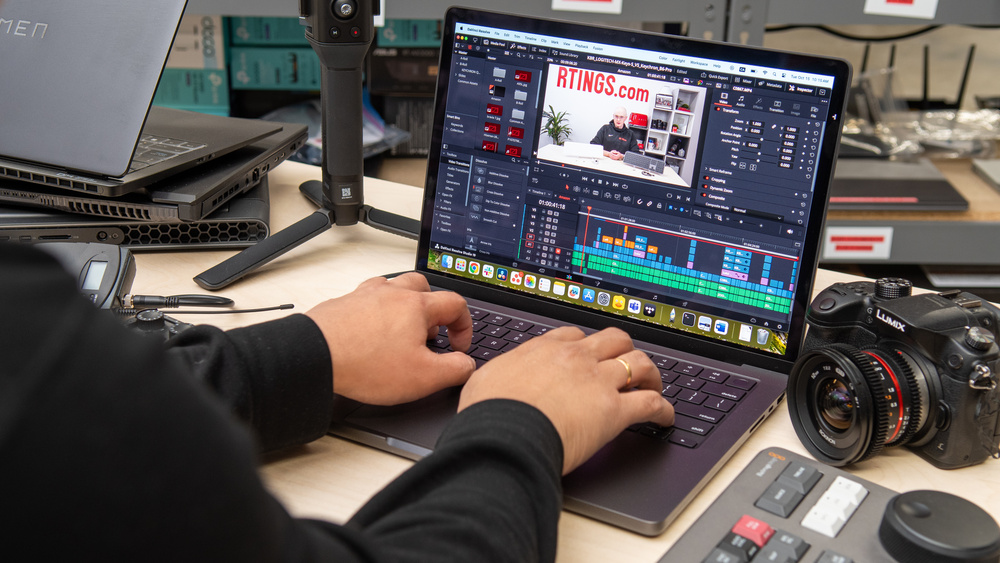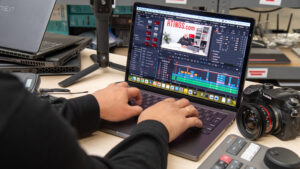Choosing the right laptop is crucial for programmers in Nigeria. Whether you are a web developer, software engineer, mobile app developer, or data scientist, your laptop plays a significant role in your productivity. A good laptop should have a fast processor, enough RAM, a comfortable keyboard, and long battery life to support coding efficiently.
➡️ “Discover Clean Uk Used Desktops! Check out our latest collection here: Psero desktops – Feature-Packed Models.”
1. Performance: The Heart of a Good Programming Laptop
A laptop’s processor (CPU) determines how fast it runs applications and compiles code. Most Nigerian programmers prefer laptops with Intel Core i5/i7 or AMD Ryzen 5/7 processors for smooth multitasking and fast execution of programs.
Recommended:
- Frontend/Web Developers: Intel Core i5 or AMD Ryzen 5 (at minimum).
- Backend Developers & Data Scientists: Intel Core i7 or AMD Ryzen 7 for handling databases, servers, and large datasets.
2. RAM: Smooth Multitasking Without Lag
Programming often involves running multiple applications at once, such as code editors, virtual machines, databases, and browsers. A laptop with low RAM can slow down when switching between tasks.
Recommended:
- 8GB RAM for beginners.
- 16GB RAM for professional developers.
- 32GB RAM for heavy coding tasks like AI, ML, and game development.
3. Storage: SSD vs. HDD
Most programmers prefer Solid-State Drives (SSDs) over traditional Hard Disk Drives (HDDs) because SSDs offer faster boot times, quicker file access, and better performance.
Recommended:
- 256GB SSD for basic development.
- 512GB or 1TB SSD for handling large projects and databases.
4. Keyboard: Comfort for Long Coding Sessions
Since programmers type for long hours, a comfortable keyboard with good key travel and spacing is important. Many developers prefer backlit keyboards for coding in low-light conditions.
Recommended:
- Full-sized keyboard with soft keys for fast typing.
- Backlit keyboard for working at night.
- Good key travel to reduce finger fatigue.
5. Display: Clear and Comfortable for the Eyes
A good display reduces eye strain and makes reading code easier. Programmers prefer screens with at least Full HD resolution (1920×1080) and anti-glare features to improve visibility.
Recommended:
- Screen Size: 14-inch or 15.6-inch for portability and comfort.
- Resolution: Full HD (1920×1080) or higher.
- Screen Type: IPS panel for better viewing angles and color accuracy.
6. Battery Life: Power for Nigerian Programmers on the Go
Since power supply issues are common in Nigeria, programmers prefer laptops with long battery life to keep working even when there’s no electricity.
Recommended:
- At least 6–10 hours of battery life.
- Fast charging support for quick power boosts.
7. Operating System: Windows, macOS, or Linux?
The choice of Windows, macOS, or Linux depends on the type of programming work.
- Windows: Best for general-purpose programming, game development, and .NET frameworks.
- macOS: Preferred for iOS/macOS app development and UI/UX design.
- Linux: Great for backend development, cybersecurity, and ethical hacking.
8. Budget: Finding the Best Laptop at the Right Price
Nigerian programmers look for laptops that offer good performance at an affordable price. UK-used laptops are popular due to their durability and lower cost compared to brand-new models.
Best Laptops for Nigerian Programmers
- MacBook Pro (M2/M3 Chip) – Best for macOS development and high-performance tasks.
- Dell XPS 13/15 – Great for professional developers and long battery life.
- Lenovo ThinkPad X1 Carbon – Durable, powerful, and excellent keyboard.
- HP Spectre x360 – Lightweight, touch-enabled, and great battery life.
- Asus ZenBook 14 – Affordable and powerful for most coding tasks.
- Acer Aspire 5 – Budget-friendly for beginner programmers.
Conclusion
A good programming laptop should have a fast processor, sufficient RAM, SSD storage, a comfortable keyboard, and long battery life. The right choice depends on your budget, preferred OS, and type of programming work.

